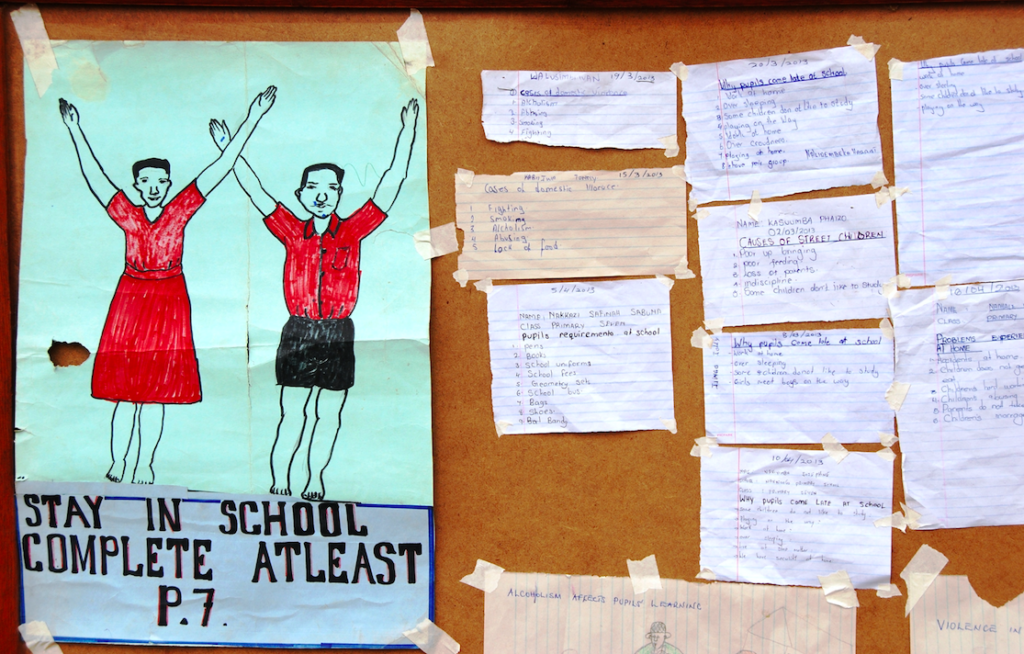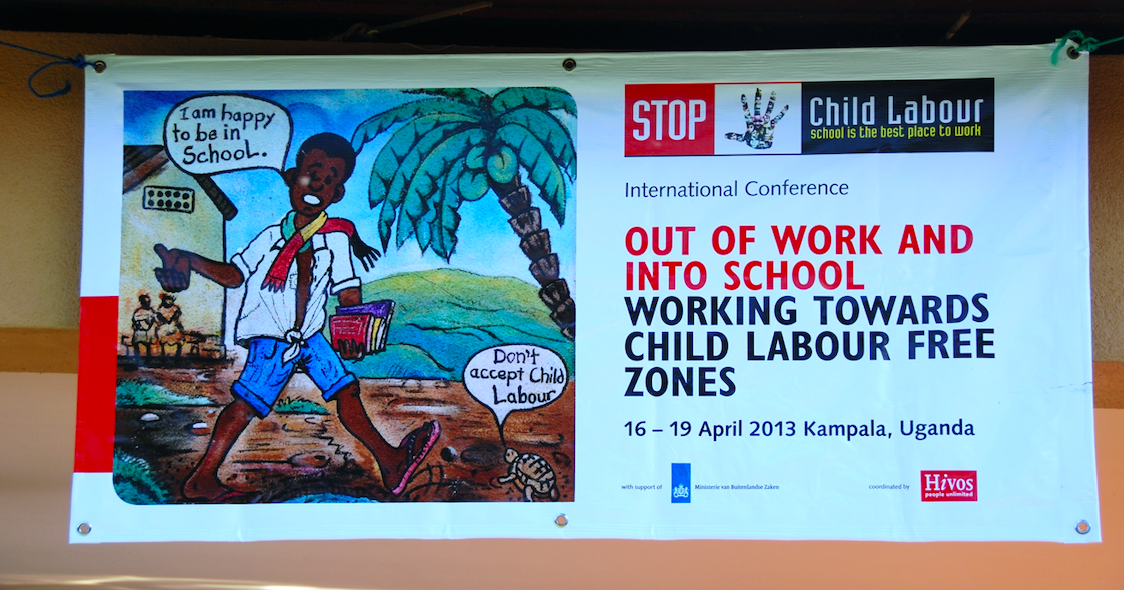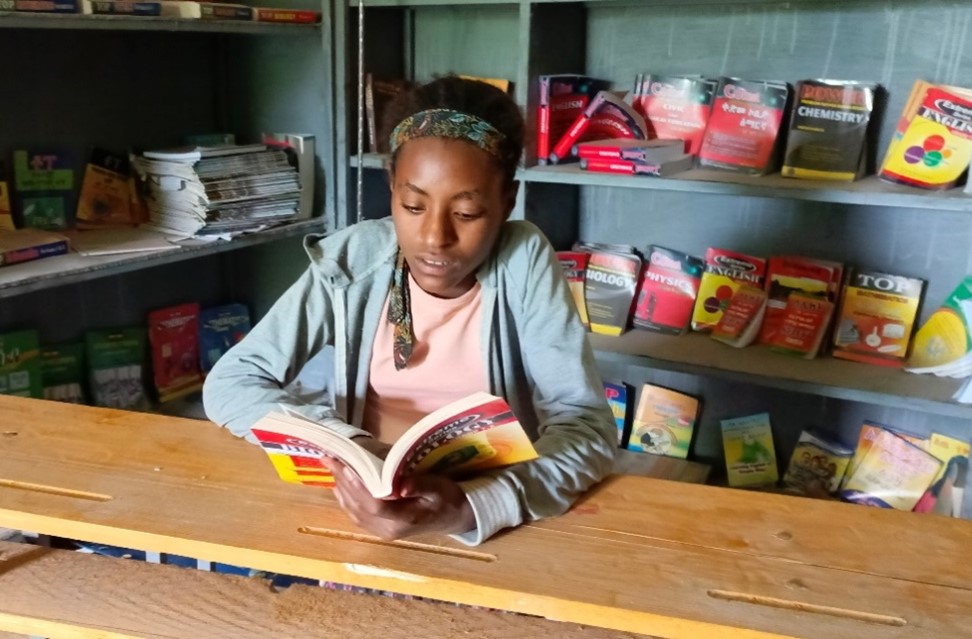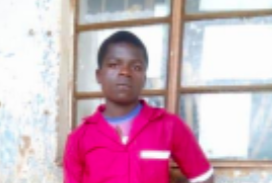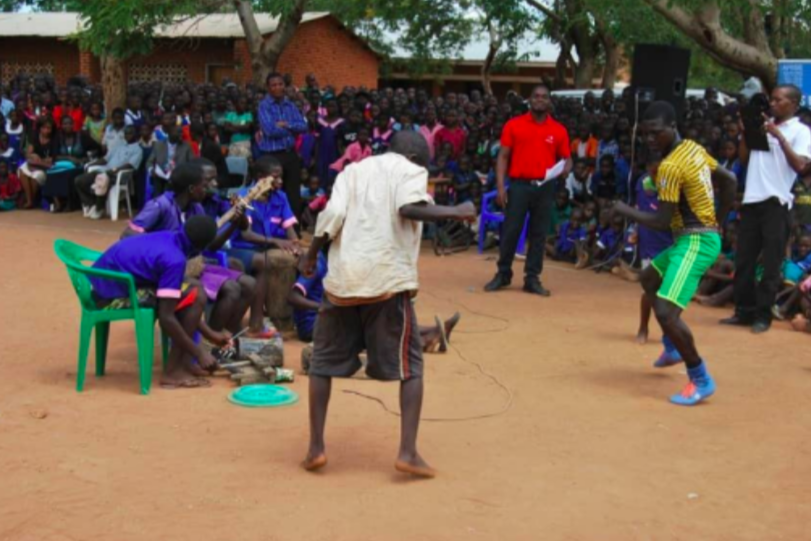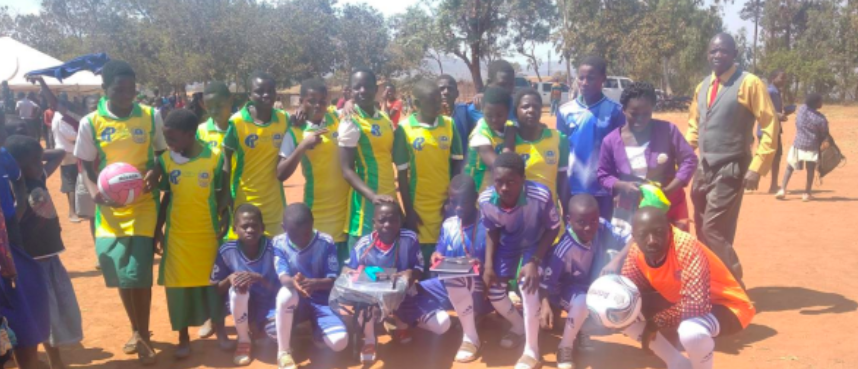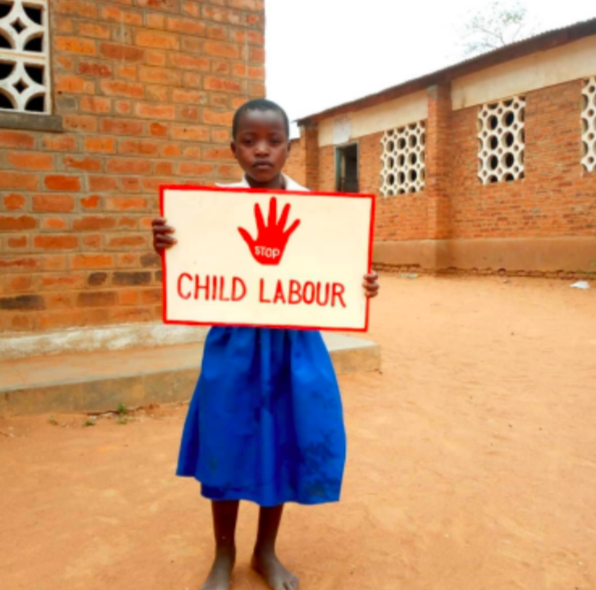These five stories concern four children and one young adult in Uganda who were out of school, and in most cases forced into child labour. For each one, anti-child-labour interventions and campaigns involving NGOs, teachers’ unions and the local community helped them chart a new course in life. These stories offer inspiration for children and parents in challenging family situations and living in poverty that their lives can change for the better. The story of Jame’s is provided by Community Empowerment for Rural Development (CEFORD). The stories of Margret, Lucy and Paska are provided by Nascent Research and Development Organization Uganda (NRDO). The last story told by Alfred is provided by Education International.
James’ story
James Oyirwoth is a 9-year-old pupil at Kaya primary school in Paidha subcounty, Zombo district in Uganda’s West Nile subregion. He lives with his parents and four siblings in Theyau village in Kaya parish.
James says that both his mother and his father were drunkards who regularly fought over simple things due to misunderstandings. Both his parents are uneducated and in the past did not provide him with any educational support or advice. He says:
“My parents would say, ‘I cannot waste my money to buy books, pens and other school materials for any child since it is time and resource wastage.’ They would say that many people are educated in Uganda but are unemployed and are miserable and very poor despite their education.
“My dad would say, ‘I had better use the money to buy alcohol or other food items instead of wasting it on education that doesn’t yield anything good.’“Whenever my parents were drunk,” James says, “they fought and used abusive words against us. Our neighbours called our home garamba which means ‘fighting ground’. Our uncles, aunties and neighbours would intervene to counsel my parents, but nothing changed.”
Things continued like this until a chairperson on the local council, together with the child labour committee, mobilised and organised sensitisation on child labour issues.
James continues:
“Together with my siblings and my parents, we attended the meeting organised by the child labour committees. I could see my father nodding positively a lot and being touched by the message and stories on child labour, domestic violence, education and teenage pregnancy being shared. The team emphasised the effects of child labour and the benefits of education for households and the nation.
“After the sensitisation, we went home, and my father called a family meeting – which was the first of its kind since we were born. He apologised for not taking his responsibility seriously and promised to stop or reduce his drinking. He also drew up a plan for us to begin education.
“My mother was on the opposite side, raising issues of how my two sisters should support her with domestic work and how our family lacked money to finance our education. However, my dad insisted he would try everything possible to make sure we were in school.
“In 2019 we started schooling, and my dad stopped drinking alcohol completely. We finished the first term. But things were not fine in the second term until the child labour committee, CEFORD [a Ugandan NGO] and Kyagalanyi [a Rainforest Alliance-supported coffee company that works to prevent child labour] gave us school materials. This was because we were among the children who continued attending school despite not having books, pencils, pens or uniforms. In the third term, my father grew beans and sold enough to support our education.
“I am very grateful that we can continue to study with both my parents’ support, as our mother also joined the effort. Our parents have diversified their income and now grow beans, maize and cassava to raise money to support us in school and also to provide us with food every day.”
Margret’s story
“My name is Margret Ochwee. I am 10 years old and from Nanyidik village where I used to live with my mother and my other six siblings (three boys and three girls). After my father died during the terrible cattle raids two years ago, my uncles took over everything including the cattle we had. Two of my brothers were taken along to work as shepherds.
“After that, my mother was the one taking care of us. She earns money mainly by selling firewood and charcoal burning. The first time my mother attended the meeting against child labour, she stopped me from helping her sell charcoal and firewood. She told me to join the motivational learning centre, which is within the village.
“But my uncles kept beating my mother for always talking about having her children in school. Sometimes she had no choice and gave up on us, which meant I had to go back to doing child labour.
“When I told my grandmother about my dreams of school, she supported me. I now stay with my grandmother in another village, which is about 4 kilometres from the motivation centre, but I walk there every day.
“As a child withdrawn from child labour, I like the way teachers at the motivation centre handle children with different needs. I can now write my name and read all the letters of the alphabet. I want to study hard and become a teacher to teach other young children in Nanyidik village.”
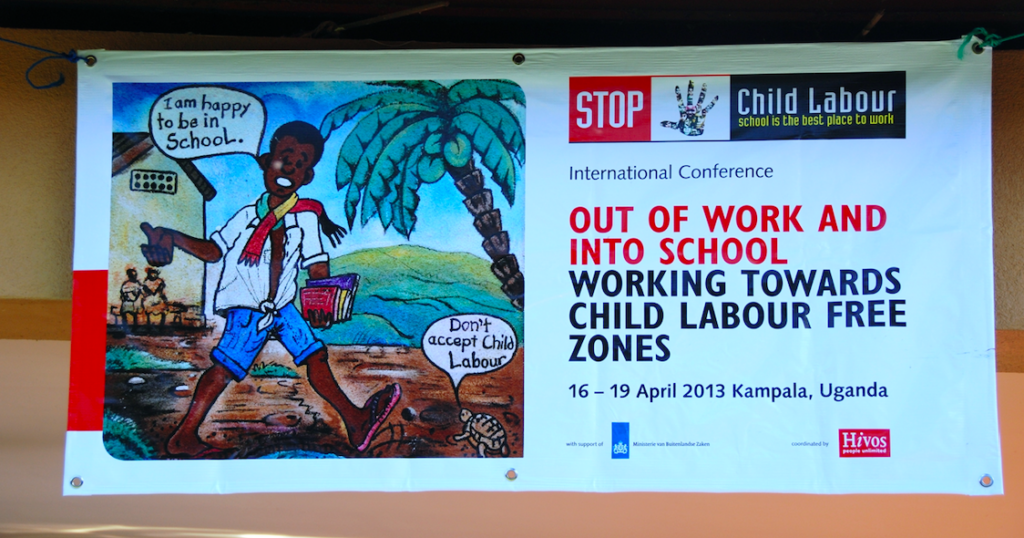
Lucy’s story
Lucy Lorot is 11 years old and lives in Nanyidik village, Rupa subcounty, Moroto district, Karamoja region. Informal artisanal gold and marble mining takes place at Rupa, about 10 kilometres north of Moroto town. Lucy’s story is one of exploitation, compassion, intervention, transformation and resilience.
“My journey into the world of work began when I was influenced by my older friends to join them at the mining site. Mr Lokol, a man who offered me work, became my employer. I did not know that this decision would lead me into exploitation.
“At the mine, I toiled from the early morning hours to late in the evening, ferrying soil out of the marble pits, all for a daily wage of USh 3,000 (Ugandan shillings) (about € 0.75). As the days passed, my health worsened . I started bleeding from my nose, ears and mouth.
“The bleeding grew worse … One day, while the bleeding was going on, some dedicated youth conducting door-to-door house visits arrived at my doorstep. Something inside me made me tell them about my situation. I shared my story with them.
“The youth chairperson, a compassionate man named Mr Areman, took action. He reached out to the dedicated staff from WNCB [Work: No Child’s Business]. The probation officer was also invited to mediate in my situation. Mr Lokol, the man responsible for my exploitation, was confronted about his actions. He was asked to provide me with the medical attention I needed.
“Thanks to their intervention, I am now healed, free from child labour and on a path to a brighter future. Even Mr Lokol has been transformed. He has become an advocate in the fight against child labour and works for an end to the exploitation he was once a part of.”
Paska’s story
“My name is Paska Nakong. I am 12 years old and live in Nanyidik village, Rupa subcounty. I live with my mother Mary and my three siblings.
“Before I was withdrawn from child labour, I was involved in stone quarrying at an early age because I had to help feed our family. When the WNCB programme put a motivational learning centre next to where we were quarrying, I got motivated to join other children at the centre. I did not believe my life would change. But with regular counselling from the teachers and staff from Nascent RDO-U, I picked up the interest to continue learning.
“I can now read and write. I joined Musas primary school and was promoted to Level 3. I love education and want to study until I complete university so that I can help my family and the entire village of Nanyidik. In the holidays, I always spend much of my time with my other friends at the motivational centre, and I encourage them to continue coming to the centre.”
Alfred’s story
Alfred (Not his real name was a victim of child labour from 2013 to 2015. He is now a medical student.
Alfred was a one-month-old baby when his parents divorced in 2001. His mother went back to live with his maternal grandmother but two months later married another man and abandoned Alfred to his grandmother. His grandmother took care of him until he joined primary school at the age of 5.
People in the community didn’t like the idea of Alfred going to school and discouraged his grandmother. They said he should be home helping with domestic work. But Alfred’s grandmother stood up for him and kept him in school.
Alfred continues:
“Life hit us hard in 2013, when my grandmother died. She was my caretaker and the bread-winner at home. Things worsened. I was in primary 5th grade. My uncles never cared about me any more. They asked me to stop school and to start garden work [domestic food cultivation] if I wanted their support. We would go the whole day working in the garden, with no single meal. I saw death coming my way.
“I had no option but to go on to the street to look for survival for myself at this very young age. I was working for people for money on their farms, selling in the streets, doing housework, and washing vehicles and motorcycles to survive. They could exploit me. I worked while crying but I had no option or else I would die.
“Honestly, life in the street was harsh. I could not attend school as before. I could go only two or three times a week, and my health deteriorated.
“But, thank God, Rev. Sister Berocan Immaculate Mary of the Erussi Catholic Parish, Nebbi diocese, saw the life I was going through. Being an empowered person who studied and knows the value of education, she saw the potential I had, and at that young age, she took me with her. That was in 2015.”
The year 2015 was the first year of effective implementation of a child labour free zone project in Erussi subcounty. The Uganda National Teachers’ Union UNATU played a leading role, along with other partners. Sister Berocan was one of the school principals UNATU had trained, and also became the project’s local coordinator for UNATU.
Alfred says:
“Sister Berocan mentored me, supported and counselled me psychologically. She provided for my basic needs and asked me about my ambitions. I told her I wanted to become a medical doctor due to the death of my grandmother before my eyes at home in 2013.
“I felt at home in her home. She rescued me from the street life and took me back to school. I completed primary education, joined secondary school and then joined a medical school and got a certificate in medical laboratory techniques. I am now studying medicine.
“I got inspired when I reflected on how I lost my grandmother due to illness. People in our home were ignorant about health. They believed in traditional healers and could not afford hospital bills. I pledged to help my community with all this knowledge that I have to improve the health of the community, empower them and be a role model to the young generation.
“This story is not only mine. It’s a normal thing in my community where people are ignorant and live in extreme poverty. Most youths and children are going through the same.”
